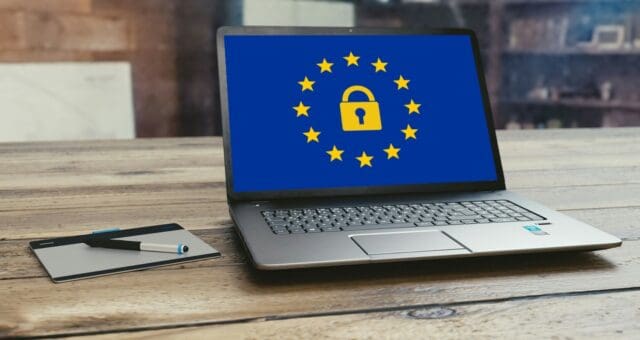As of July 2019, the new "Regulation 1020/XNUMX two thousand and nineteen regarding market surveillance and product conformity" will be applicable throughout the EU. Since it is a regulation, its application is direct without transposition, therefore, from that day on, what is regulated in it will be imperative in any member country of the European Union.
This regulation aims to strengthen the foundations and structures of the legislative framework that allows the free movement of products in the Union area. Strengthening product market surveillance through rules and procedures that guarantee that products, subject to Union harmonization legislation, meet the established conformity requirements. These requirements are intended to provide a high level of protection of public interests such as health and safety, both generally and at work; the protection of users, the environment or public safety. With the fulfillment of these requirements, it is believed that the conditions that allow fair competition in the internal market between the different economic operators are in place. The rules must ensure compliance of both products marketed offline and those marketed online, whether they are manufactured in the Union or outside of it. For this, the regulation also defines a framework that allows establishing the controls of the products that enter the Union market.
The regulation defines an economic operator as "the manufacturer, the authorized representative, the importer, the distributor, the logistics service provider or any other natural or legal person who has obligations in relation to the manufacture of products, their commercialization or putting it into service in accordance with the applicable Union harmonization legislation”. An essential change with respect to the previous regulation is the inclusion as an economic operator of "logistics service providers", whose definition is: "any natural person or legal entity that offers, in the course of its commercial activity, at least 2 of the upcoming services: store, pack, direct and dispatch, without having ownership of the products in question”, excluding postal services, parcel services, and any other postal service or merchandise transport service).
This inclusion is a consequence of the challenges posed by a world market with globalized supply chains and the substantial increase in trade through the online sale of products aimed at end users in the Union. There are situations in which there are logistics service providers who carry out many of the functions carried out by importers, but for whom there was a legal vacuum that left them outside the traditional definition of importer in Union Law, and which prevented the market surveillance authorities could act to ensure compliance with the products that these providers dealt with. In this way, with the new regulation, an economic operator will be able to act as an importer for some products and as a provider of logistics services for others, subject in each and every one of the cases to certain obligations.
The regulation establishes that products can only be introduced if there is an economic operator established in the Union. Considering that an economic operator will be able to be: either a manufacturer established in the Union; or an importer, where the manufacturer is not established in the Union; or an authorized representative with a written order from the manufacturer; or a logistics service provider established in the Union with respect to the products processed by it, when none of the 3 aforementioned economic operators is established in the Union. In other words, a logistics service provider established in the European Union will be considered an economic operator, with the relevant obligations, when dealing with products from a manufacturer outside the European Union and introducing them into the European Union.
For economic operators, the regulation establishes some tasks that briefly state that:
a) It must be verified that the products have a European Union declaration of conformity or a declaration of possibilities and a technical documentation; The European Union declaration of conformity or the declaration of possibilities must be maintained for the period required by the legislation, and it must be ensured that the technical documentation will be available to the market surveillance authorities when they request it.
b) If a market surveillance authority requests it, all the information and documentation necessary to prove the conformity of the product must be provided in a language that said authority can easily understand.
c) If the economic operator has a reason to believe that a product presents a danger, he must inform the market surveillance authorities.
d) If a product violates any of the established requirements, the economic operator must collaborate with the market surveillance authorities, ensuring that the necessary corrective measures are adopted immediately to remedy this non-compliance or, if this is not possible, reduce the dangers that this product presents. This may be at the request of the market surveillance authorities or at the operator's own initiative if he considers or has reason to believe that a product presents a danger.
As a result of this, those online commerce platforms established in the European Union that, in addition to this, carry out logistics services, that is, if the products that these platforms make available to the end user are processed by the logistics service of that platform, they will have to verify that both the declaration of conformity and the documentation exist. This obligation will be able to make the platforms sue, in order for a product to be included in them, that manufacturers from outside the European Union send the declaration of conformity and the test reports that prove that the product meets the requirements of the legislation. On the subject of test reports, it must be taken into account that for those that have been carried out by laboratories outside the European Union, these laboratories must have a mutual recognition pact for tests of European regulations with a Union laboratory. European accredited.
Another of the substantial elements of the new regulation is that it introduces the obligation, for each and every one of the member states of the European Union, to design a general national market surveillance strategy. July XNUMX, XNUMX being the deadline to communicate the first strategic plan to the Commission and the other Member States.
The regulation determines that the Member States will give the market surveillance authorities a series of powers over the economic operators that will allow similar actions such as:
a) Demand that they provide the relevant documents, technical specifications, data or information regarding conformity and theoretical aspects of the product, including access to the embedded software.
b) Demand that they provide the pertinent information on the supply chain, details of the distribution network, the quantities of products on the market and other product models that have exactly the same technical characteristics as the investigated product.
c) Demand that they provide the pertinent information that allows determining the ownership of the sites, when necessary for the investigation.
d) Carry out on-site inspections and physical checks of the products without prior notice.
and also) Enter any premises, land or means of transport that are used for purposes related to their commercial, business, craft or professional activities, in order to warn of breaches and obtain evidence.
f) Demand that they adopt the appropriate measures to put an end to a case of non-compliance or to remove a danger.
g) Prohibit or limit the commercialization of a product or to order the withdrawal or restoration of the product;
h) Impose sanctions in accordance with the regulations.
i) Demand the removal of content related to products from an online interface, or to demand that a warning be explicitly displayed to end users when they access an online interface.
In addition to this, the regulation allows Member States to authorize their market surveillance authorities to sue the economic operator, in cases of non-compliance, for all the costs generated by the activities carried out. Being able to include, among many others, the costs of the tests, the costs of the measures adopted or the costs of storage.
Another of the fields of action of the regulation is what is known as "dispatch for free circulation", which is the regime that provides non-Union merchandise with the customs status of Union merchandise, when they are intended to be introduced on the Union market or intended for private use or consumption within the Union. In this way, the regulation establishes that products entering through customs will be able to be prevented from entering if:
• They are not accompanied by relevant documentation or if there are reasonable doubts as to the authenticity, accuracy or completeness of that documentation.
• They are not marked or labeled for compliance.
• They carry a CE marking or another demanded marking placed in a false or illusory manner.
• There are reasons to believe that the product does not meet the established requirements, or that it presents a serious danger to health, safety or the environment.
If the authorities come to the conclusion that the product is dangerous, they will immediately enter that information into the European information and communication system and into the customs data processing system, with which it will have to be prevented from entering the rest of the the countries of the European Union.
This means that if we import products into the European Union or the components of our products are from outside the European Union, we will have to check before making the purchase that these products comply with the legislation. My recommendation to those responsible for purchasing is to request not only the declaration of conformity but rather the test reports carried out for that product that prove its conformity. It would be an arduous problem if the parts that we are waiting for the machine components are stopped at customs because they do not have the technical documentation in order. Or that the products for the Christmas campaign did not arrive on time at the distributors.
In conclusion, I advise all those who are going to import products or components since July, or who use online trading platforms to buy or sell products, to make sure that the products have the relevant compliance documentation before carrying out an action. of an economic nature to avoid further troubles.
References:
• Regulation (European Union) 2019/1020 of the European Parliament and of the Council, of June XNUMX, XNUMX, regarding market surveillance and product conformity.
• Commission Communication C/2016/1958 — "Blue Guide" on the application of European regulations on products.
• Regulation (CE) no. 765/2008 of the European Parliament and of the Council, dated July XNUMX, two thousand and eight, which establishes the requirements for accreditation and market surveillance related to the marketing of products.








